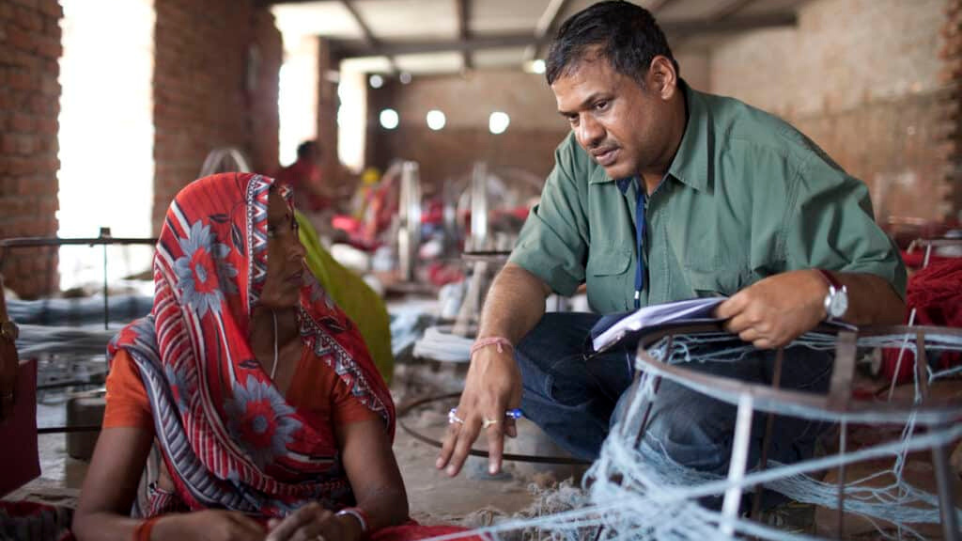Sustaining the Handmade Rug Industry
January 27, 2023The concept of sustainability is far reaching. It not only concerns how to treat the environment ethically but also how we can do the same with people. Here Nina Smith, CEO of GoodWeave, is keen to point out how vital this is for the rug industry

This article was written by GoodWeave CEO Nina Smith and first appeared on Cover Magazine on January 27, 2023.
Born in a village in south eastern Nepal, Maya did not have an easy childhood. She performed household chores and tended livestock from a young age. Poverty and other family challenges led to Maya’s mother abandoning the family. Her father could not care for Maya and her brother, and life in her village was unsustainable. When she was eight years old, Maya’s uncle took an advance from a thekedar (broker) in exchange for bringing his niece to a carpet factory in Kathmandu.
There are more than 160 million children around the world in child labour, and estimates are on the rise as a result of the COVID-19 crisis, according to the International Labor Organization and UNICEF. GoodWeave’s mission is to reverse this trend. We also work to ensure that carpet-weaving communities can sustain themselves by improving work conditions, as well as protecting the rights of children and workers. When we achieve these goals, livelihoods and entire industries are sustained, and the vicious cycle of child labour, illiteracy and poverty are broken.
As I write this article, carpet exporters in India and Nepal are reporting significantly slowed orders. This follows a brief ‘sheltering in place’ pandemic up-tick when consumers around the world were focused on home improvements. These exporters are concerned about the viability of their businesses because of this trend, as well as the challenges of recruiting and retaining workers. The words of Raj Kumar Lama of Lama Carpet and Handicraft, Kathmandu, Nepal, hit this point home: ‘… most of the weavers are losing interest in weaving. That is a terrible truth for our industry. Weaving has become something not like a skill, it’s more like a labour. If we treat workers like artists or skilled labourers, that scenario could change.’
Read rest of the piece via Cover Magazine
